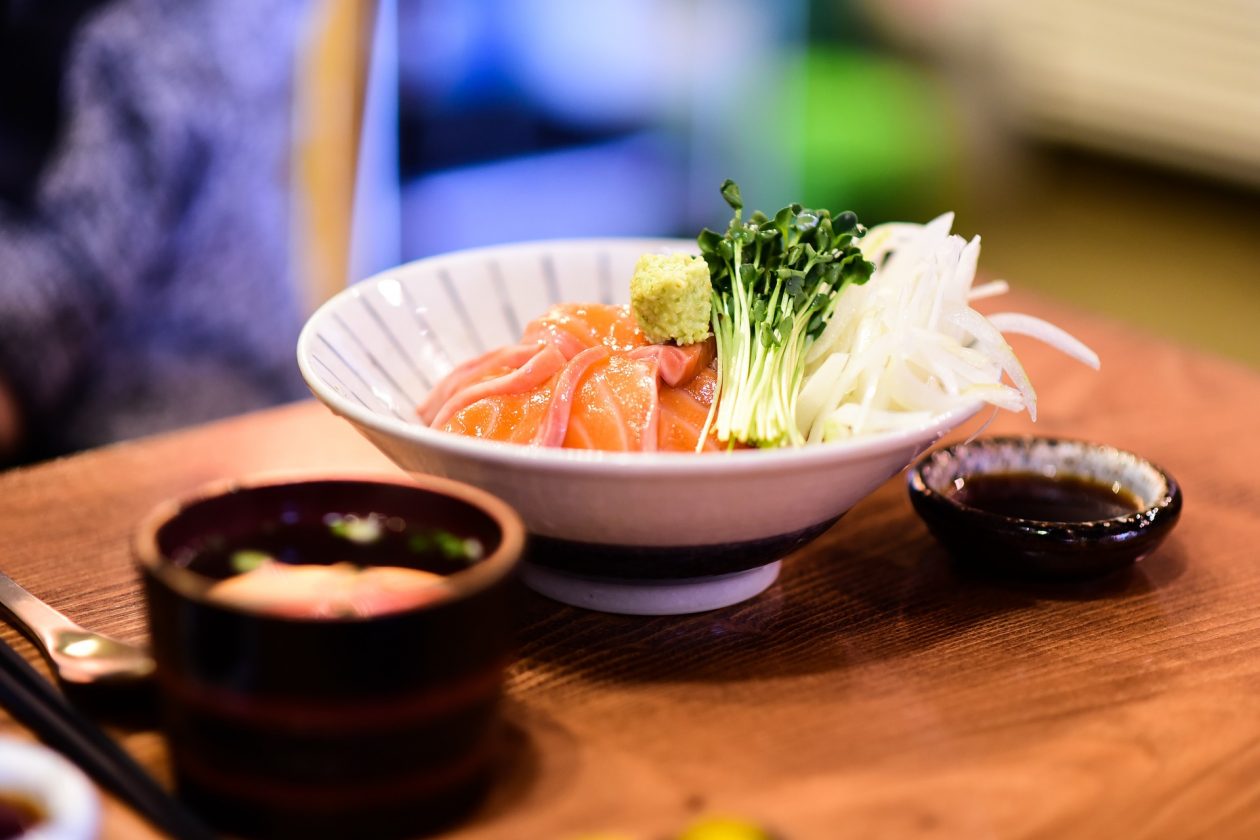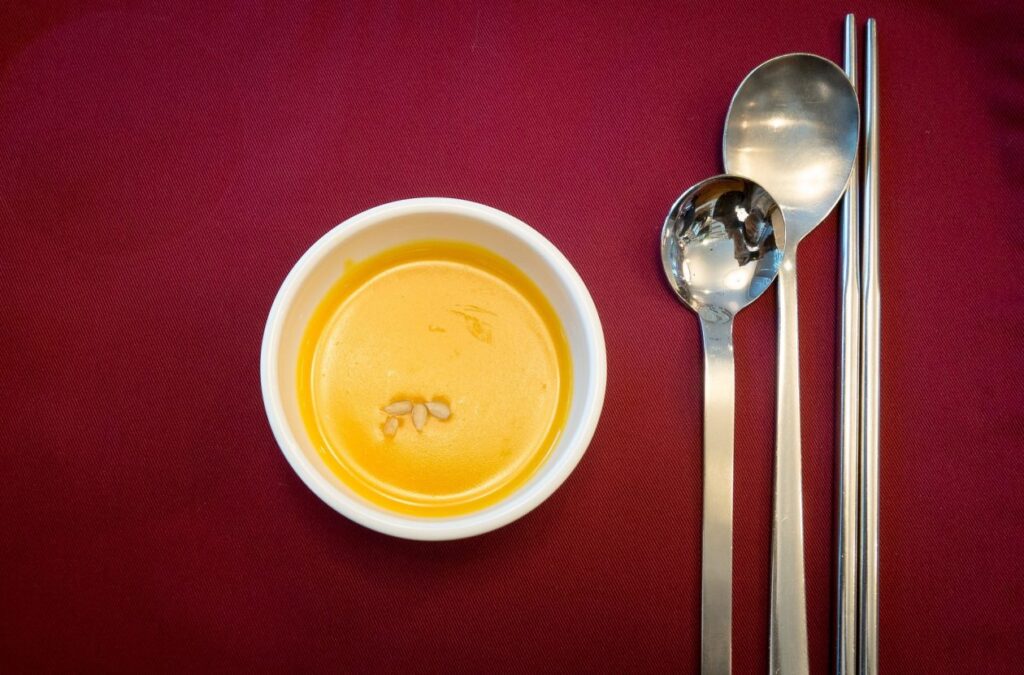Is Korean Food Healthy? 8 Reasons Why Korean Cuisine Proves It to Be the Healthiest Choice
 / Discover more like this here: https://stylevitally.com/is-korean-food-healthy/?feed_id=447&_unique_id=644f1daac8a09
/ Discover more like this here: https://stylevitally.com/is-korean-food-healthy/?feed_id=447&_unique_id=644f1daac8a09
The popularity of Korean food is rising, and for a good reason. Korean cuisine offers a lot, from mouthwatering flavors to health advantages. But Is Korean food healthy? Many people ask this question, and the answer is unambiguous, yes! This article will examine eight factors that make Korean food the most nutritious cuisine, demonstrating that "Is Korean food healthy?" has a resoundingly favorable response.
Fresh ingredients, fermented foods, and healthy oils are prized elements of Korean cuisine. It is also a cuisine that balances flavor and nutrition, offering a delectable taste experience and providing the body with the necessary nutrients. When including Korean cuisine in your meal plans, it is simple to maintain a healthy and balanced diet due to the variety of dishes available.
So Korean cuisine is an excellent option whether you want to keep up a healthy diet or just enjoy delicious food. Learn more about the eight factors that make Korean food the most nutritious cuisine in the world by reading on.
Reason 1: Emphasis on Fresh Ingredients

Korean cuisine strongly emphasizes using fresh ingredients, one of its distinctive features. Every dish has the newest and most flavorful ingredients because Korean cuisine typically uses seasonal produce. Leafy greens and other delicious vegetables are common ingredients in Korean cuisine, which are not only delicious but also brimming with vital vitamins and minerals.
Fresh ingredients are essential to each dish's flavor and health benefits in Korean cuisine. Fresh ingredients are a defining characteristic of Korean cuisine, from the delicate flavor of seasonally available herbs to the crisp crunch of freshly sliced vegetables. Additionally, the abundance of fresh ingredients used in Korean cuisine helps ensure that each meal is delicious and nutrient-dense.
A great way to ensure you get a good balance of fresh ingredients in your meals is to incorporate Korean cuisine into your diet. The emphasis on fresh herbs and spices and the use of leafy greens and seasonal produce make Korean cuisine a delicious and wholesome way to enjoy fresh ingredients at every meal.
Reason 2: Use of Fermented Foods

In Korean cooking, fermented foods play a significant role and have numerous health advantages. Foods that have undergone a process of lacto-fermentation, in which lactic acid bacteria feed on the sugar and starch in the food and produce lactic acid as a byproduct, are referred to as fermented foods. This lactic acid gives the food a sour, tangy flavor that many enjoy while aiding in food preservation.
Fermented foods like kimchi, miso, and soy sauce are frequently used in Korean cooking for their mouthwatering flavor and nutritional value. Probiotics, which are helpful bacteria that support gut health, are abundant in fermented foods. You can support overall wellness, improve immune function, and enhance digestive health by including fermented foods.
In addition to being high in vitamins and minerals, fermented foods are a fantastic addition to a balanced diet. They are an excellent choice for people trying to maintain a healthy weight because they are low in calories and fat but high in fiber and nutrients.
In conclusion, one of the critical components of Korean cuisine's health advantages is its use of fermented foods. Incorporating Korean cuisine and its fermented foods into your diet is an excellent choice whether you want to enhance gut health, strengthen your immune system, or just enjoy delicious food.
Reason 3: High in Antioxidants

Antioxidants, substances that defend the body against damage from free radicals, are also abundant in Korean cuisine. Free radicals are unstable molecules that have the potential to harm cells, resulting in a variety of health issues, such as cancer, heart disease, and cognitive decline. Free radicals are neutralized by antioxidants, which lessens the damage they cause.
Many Korean dishes are full of antioxidants and are an excellent addition to a healthy diet, especially those made with fresh fruits and vegetables. For instance, it has been demonstrated that the antioxidants present in the widely used Korean foods garlic, onions, and ginger can help to reduce inflammation, lower the risk of cancer, and shield against heart disease.
Korean cuisine includes fermented foods, which are rich in antioxidants because of the fermentation process and the antioxidants found in fresh ingredients. For instance, kimchi contains significant amounts of potent antioxidants, vitamins C and E.
You can get a good balance of antioxidants in your meals by incorporating Korean cuisine into your diet. Korean cuisine offers a tasty and wholesome way to get the antioxidants your body needs, whether trying to reduce inflammation, lower your risk of cancer, or safeguard against heart disease.
Reason 4: Rich in Omega-3 Fatty Acids

Omega-3 fatty acids, which are necessary fats and are essential for maintaining good health, are also abundant in Korean cuisine. In addition to their anti-inflammatory properties, omega-3 fatty acids have several health advantages, such as lowering the risk of heart disease, enhancing cognitive function, and lowering the likelihood of developing depression and anxiety.
Omega-3 fatty acids are present in foods like seafood, seaweed, and chia seeds used in Korean cooking. For instance, foods rich in omega-3 fatty acids, like seafood pancakes and seaweed soup, can be a healthy addition to a Korean-style meal.
You can ensure that you get the omega-3 fatty acids your body requires by including Korean food in your diet. Korean cuisine offers a wholesome and delectable way to get the omega-3 fatty acids your body needs, whether trying to lower your risk of heart disease, enhance cognitive function, or just enjoy delicious food.
In conclusion, omega-3 fatty acids, critical for maintaining good health, are abundant in Korean cuisine. Incorporating Korean food into your diet is an excellent choice whether you want to strengthen your heart, support your brain, or just enjoy delicious food.
Reason 5: Low in Unhealthy Fats
Various health issues, such as heart disease, obesity, and type 2 diabetes, can be caused by unhealthy fats; however, Korean cuisine is low in these fats. Saturated and trans fats are unhealthy fats that can increase cholesterol levels, raising the risk of heart disease and causing weight gain and other health issues.
In Korean cooking, monounsaturated and polyunsaturated fats are frequently substituted for unhealthy fats. For instance, healthy oils, such as sesame oil, which is high in monounsaturated fats, are commonly used when preparing dishes like bibimbap and bulgogi.
You can eat delicious food while reducing your intake of bad fats by incorporating Korean cuisine into your diet. Korean cuisine offers a delightful and nourishing way to reduce your intake of bad fats, whether trying to improve heart health, maintain a healthy weight, or just enjoy nutritious meals.
In conclusion, Korean food is low in unhealthy fats, making it a fantastic option for anyone looking to strengthen their heart, keep their weight in check, or just enjoy wholesome meals. Including Korean food in your diet is an excellent choice whether you want to lose weight, enjoy delicious food, or consume fewer unhealthy fats.
Reason 6: High in Fiber
The fiber in Korean food is also essential for promoting good health. In addition to promoting feelings of fullness and regulating digestion, fiber also lowers cholesterol levels and the risk of heart disease.
Fibre is present in foods used in Korean cuisine, including grains, beans, and vegetables. For instance, foods like bibimbap and japchae, which contain carrots, spinach, and sweet potatoes, are high in fiber.
In conclusion, the high fiber content of Korean food makes it a fantastic option for anyone looking to control their digestion, encourage feelings of fullness, or simply enjoy nourishing meals. Adding Korean food to your diet is an excellent choice whether you want to improve your fiber intake or just want to eat delicious food.
Reason 7: Balances Flavor and Nutrition

Korean food strikes a genuinely unique balance between flavor and nutrition, which is one of its many beautiful qualities. Healthy ingredients can sometimes be bland and unappealing in food, whereas unhealthy ingredients are frequently flavorful. But in Korean cooking, nutritious ingredients are commonly combined with solid flavors to produce mouthwatering dishes.
For instance, bibimbap and kimchi are both rich in flavor and nutrition. While vegetables and grains add food, spices like chili flakes, garlic, and ginger add bold flavors.
You can enjoy healthy, delicious meals by incorporating Korean cuisine into your diet. Korean cuisine offers an outstanding balance of flavor and nutrition that is difficult to find elsewhere, whether you are trying to improve your health or are just looking to enjoy delicious food.
In conclusion, Korean food strikes a unique balance between flavor and nutrition. Incorporating Korean food into your diet is an excellent choice whether you want to enhance your health or enjoy delicious food.
Reason 8: Variety of Dishes
Finally, various delicious and healthful dishes are available in Korean cuisine. Korean food has something for everyone, from hearty stews like kimchi jjigae to stir-fried dishes like bibimbap.
Incorporating various healthy ingredients into your diet is also made simple by the variety of Korean cuisine dishes. You can eat foods high in vegetables, such as bibimbap and japchae, and foods high in protein, such as bulgogi and galbi.
You can eat various delectable and healthy meals by incorporating Korean cuisine into your diet. Korean cuisine offers a wide range of options sure to please you, whether trying new dishes or simply enjoying delicious food.
In conclusion, various delicious and healthful dishes are available in Korean cuisine. Including Korean food in your diet is an excellent choice whether you want to enjoy delicious food or try new dishes.
Conclusion
In conclusion, Korean food is a delectable and incredibly healthy cuisine with many health advantages. There is a lot to love about Korean cuisine, from the focus on using fresh ingredients and fermented foods to the high levels of antioxidants, fiber, and Omega-3 fatty acids.
Including Korean food in your diet is an excellent choice if you want to eat delicious food, improve your health, or try new things. Everyone can enjoy Korean food thanks to its distinct flavor and nourishing blend.
Therefore, the answer to the question "Is Korean food healthy?" is emphatic, yes! Korean cuisine is a flavorful and nutrient-dense cuisine that is sure to please, thanks to its emphasis on using fresh ingredients, fermented foods, and a distinctive combination of flavors and nutrition. Why not try it out for yourself right now?
https://stylevitally.com/is-korean-food-healthy/?feed_id=447&_unique_id=644f1daac8a09
Comments
Post a Comment